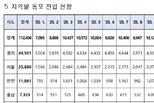Newsnomics AJAY ANGELINA reporter |
Pakistan denied to acknowledge the supremacy of the Indian Constitution over Jammu and Kashmir, said Foreign Ministry of Pakistan on Monday, 11 December 2023.
Jalil Abbas Jillani, the Caretaker Foreign Minister of Pakistan has slammed the Indian Supreme Court's verdict that validated the Narendra Modi-led government's unilateral move to scrap Article 370 - the constitutional provision that granted semi-autonomous status to the Muslim-majority region.
Pakistan’s interim foreign minister read out Islamabad’s official response to the verdict saying “Pakistan categorically rejects the judgment on the status of the IIOJK, Indian Illegally Occupied Jammu and Kashmir.”
“Jammu and Kashmir is an internationally-recognized dispute between Pakistan and India, which remains on the agenda of the UN Security Council for over seven decades. The final disposition of Jammu and Kashmir is to be made in accordance with the relevant United Nations Security Council Resolutions and as per the aspirations of the Kashmiri people.”
Additionally, “India has no right to make unilateral decisions on the status of this disputed territory against the will of the Kashmiri people and Pakistan."
The Interim minister said. “Pakistan does not acknowledge the supremacy of the Indian Constitution over Jammu and Kashmir added any process, subservient to the Indian Constitution, carries no legal significance.”
Further he said, "India cannot abdicate its international obligations on the pretext of domestic legislations and judicial verdicts. Its plans to annex IIOJK are bound to fail.”
"The judicial endorsement of India’s unilateral and illegal actions of August 5, 2019, is a travesty of justice, based on distorted historical and legal arguments,” said the foreign ministry of Pakistan.
"The Indian Supreme Court’s verdict fails to recognize the internationally-recognized disputed nature of the Jammu and Kashmir dispute that fails to cater the aspirations of the people of Kashmir, who have already rejected India’s illegal and unilateral actions of August 5, 2019. The judgement is yet another manifestation of the pliant judiciary under India’s ruling dispensation.
"Restoration of statehood, conduct of State Assembly elections or similar steps cannot serve as a substitute to the grant of the right to self-determination to the Kashmiri people.
"The judgement cannot distract the international community’s attention from the gross and systematic human rights violations being perpetrated in IIOJK.
Since August 5, 2019, India’s unilateral and illegal measures have been aimed at changing the demographic structure and political landscape of the IIOJK, in flagrant violation of international law and the relevant UN Security Council Resolutions, especially Resolution 122 (1957). But they remain a matter of grave concern for Pakistan, as their ultimate goal is to convert the Kashmiris into a dis-empowered community in their own home land. These measures must be rescinded to create an environment for peace and dialogue.
"Pakistan will continue to extend its full political, diplomatic and moral support to the people of IIOJK for the realization of their inalienable right to self-determination."
◆ Indian SC verdict on Article 370:
India's Supreme court on Monday upheld a move by saying Jammu and Kashmir should be restored to the same statehood as any other Indian state – with no separate autonomy rights – “at the earliest and as soon as possible”.
The five-judge constitutional committee of the Supreme Court ruled the region’s special status had been a “temporary provision” and removing it in 2019 was constitutionally valid.
“Article 370 was an interim arrangement due to war conditions in the state,” said Chief Justice DY Chandrachu by referring to the provision in the Indian Constitution that provided the special status after Muslim-majority Kashmir’s Hindu ruler signed an agreement in 1947 to join India.
As part of the Instrument of Accession, India allowed Kashmir to retain its own constitution, flag and criminal code. Kashmir had its own prime minister and president until 1953 when New Delhi jailed its prime minister, Sheikh Abdullah, and abolished the post in what it said were efforts to integrate the Muslim-majority region with the rest of India.
However, Pakistan claims Kashmir as its own territory, saying the Muslim-majority area should have been part of the new state of Pakistan, came into being in 1947 when British colonial rule has completely been ended.
The abrogation of article 370 was enforced by a lengthy crackdown on the state, where the military was mobilized in huge numbers, political leaders were jailed, a strict curfew was imposed and the internet was shut down for 18 months. It was stripped of its statehood and its political representation was dissolved and has not been restored since.
The removal of Article 370 of the constitution, which enshrined the special status of the disputed region, was challenged by Kashmir's pro-India political parties, the local Bar Association and individual litigants, culminating in Monday's verdict.
Narendra Modi's government is using deep controversial policies in IIOJK, with the insurgency that claimed tens of thousands of lives over decades largely quietened.
Security was stepped up across the disputed territory ahead of the verdict, with authorities deploying hundreds of soldiers, paramilitary troops, and police in the main city of Srinagar to thwart any protests.










